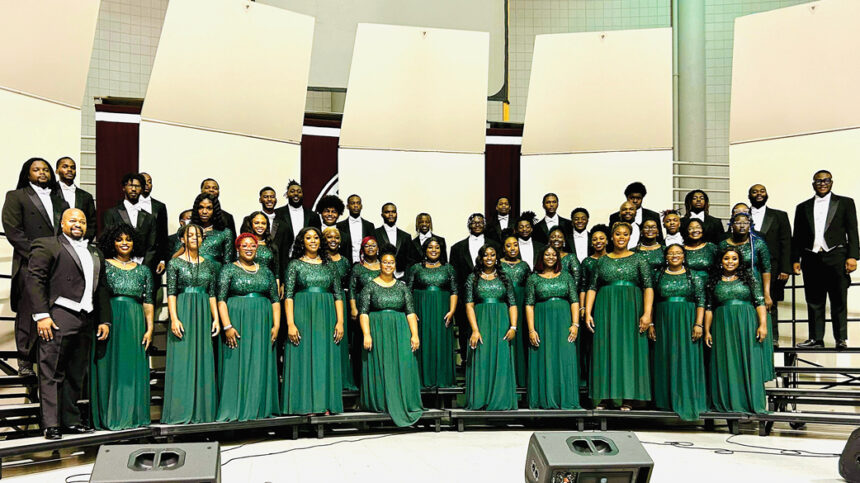Joel Thompson’s Seven Last Words of the Unarmed is a searing reach into the human heart and a powerful cry for social justice.
The Atlanta-based composer’s choral work is the centerpiece for MSO’s “Symphony in the Community” spring concert, 3 p.m. Sunday, April 21, at Cade Chapel M.B. Church in Jackson. Giving it voice is the 55-member-strong Mississippi Valley State University Choir, led by MVSU Director of Choral Activities Brandon Cash.
Thompson, troubled by killings of unarmed Black men by authority figures and inspired by Iranian-American artist Shirin Barghi’s #lastwords project, used the final words and correspondence of seven victims in this powerful multi-movement choral work. Thompson selected the statements that most easily aligned with the structure of Haydn’s Seven Last Words of Christ, with different music characterizing each of the seven movements, ranging from deeply poignant (Amadou Diallo’s “Mom, I’m Going to College.”) to urgent and charged (Michael Brown’s “I don’t have a gun. Stop shooting.”).
Premiered in 2015 by the University of Michigan Men’s Glee Club, the critically acclaimed Seven Last Words of the Unarmed spurred conversation and inspiration, an award-winning documentary, and a website resource for students, activists, and performers.
The choral composition was originally scored for an all-male chorus, but the recent availability of an SATB version (for soprano, alto, tenor, bass) opened it up to choruses of women’s and men’s voices. MVSU is among the first historically Black colleges and universities to perform the work.
Rehearsals began in late February. Given the painful nature of this topic, “It’s very emotionally wringing, especially with my men,” Cash said, and he is glad to have women singers involved as well. “I think having the heritage of HBCUs and having men and women in the ensemble, and using this platform of singing to promote this work can provide the support, and still shed light on issues of social justice.
“The majority of my students are Black and brown students, and they come from all walks of life. Singing is one of the things that brings us together as a unit and a whole.”
The MSO matinee series, now in their second year, has been a successful proving ground for MSO’s expansion into more community spaces and more collaborative programming. “What we’ve ended up doing, was letting the church, and the groups that we perform with, and the artists who read poetry there, bring the work to us,” Beck said.
“We — me personally as an artist, the orchestra as an arts organization — we are growing and learning by discovering things with our audience.
“It’s so much more than I ever thought it would be,” Beck said, with repertoire created and discovered in that space, now merging into other MSO offerings.

